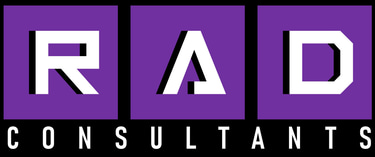Philosophy at work....at work
It's a bit too ethereal for the workplace. Or is it the perfect place for it?


You reacted. Your client berated you again. Your employee took off the sixth Friday in a row because of an "unforeseen illness". You were wronged and you're tired of it. So you are justified in giving that person a piece of your mind! And that will be a positive because...shoot.
Self-control. Discipline. Self-awareness. Mindfulness. Patience. When was the last time you regretted employing these? And compare that to anger, frustration, revenge. Regret. Regret. Regret.
Philosophy - or "the study of wisdom" - can provide some guidance and make you a better manager, employee, vendor, client, and person. And this matters to this site - Rad Consultants - because these mindfulness practices make me a better leader, professional, and business partner.
Philosophy can teach us how to respond to the world around us with a calm and rational mindset, regardless of external circumstances. After I was laid off at my previous company after nearly 11 years of just A+, top-notch, damn good service, I could have lashed out at my company. But instead, I took the news not as bad news, but as " news". And I got to work on my next challenge. Without a measured and forward-focused approach, it would not have been as neat and tidy and a bridge (or many bridges) most likely would have been burned.
Applying Principles at Work
Focus on What You Can Control: At work, there are often factors beyond our control – market trends, unexpected challenges, and "curious" decisions from other stakeholders. Focus on what's within our sphere of influence: our thoughts, actions, and reactions. By directing our energy toward what we can control, we reduce stress and increase our effectiveness. Focus on the next best step.
Embrace Adversity: In the business world, setbacks and failures are par for the course. View challenges as opportunities for growth. By reframing adversity as a chance to develop resilience and problem-solving skills, we can face difficulties head-on, learning and improving with each experience.
Practice Balance: Maintaining composure in high-pressure situations. By focusing on self-control and intentionality, we can make clearer decisions and lead by example. This is particularly important when faced with unexpected crises or when managing a team through tumultuous times.
Cultivate Empathy: Do not assume bad intent from anyone. They are making decisions that are oftentimes the right thing to do from their perspective. If you can't fathom why someone would act that way, looks like you could learn about their mindset by engaging in a productive conversation rather than harboring a silent ill-will.
Strive for Excellence, Not Perfection: Focus on progress rather than perfection. In a results-driven world, this perspective reminds us that growth is a continuous journey. By setting realistic goals and embracing 1% improvements that Kobe Bryant spoke of during his career, we create a sustainable path to success and graduate away from an expectation of instant gratification. Gratification comes from growth and pride in that growth.
Practical Applications
There are times when a sudden shift in market demand that impacts your business strategy. Applying this intentional mindset would prompt you to calmly assess the situation, adapt your approach, and focus on actions that align with your values and goals. When dealing with workplace conflicts, a disciplined approach would involve seeking common ground and addressing issues constructively, fostering a healthier work environment.
Incorporating these principles into your work life doesn't mean you'll never experience stress or setbacks. And definitely doesn't preclude you from having fun at work (I mean, look at me!). Rather, it equips you with the mindset to navigate them with resilience, clarity, and purpose.
And if you have made it this far, I think you should check out author Ryan Holiday's YouTube page right after you book a meeting with me!


